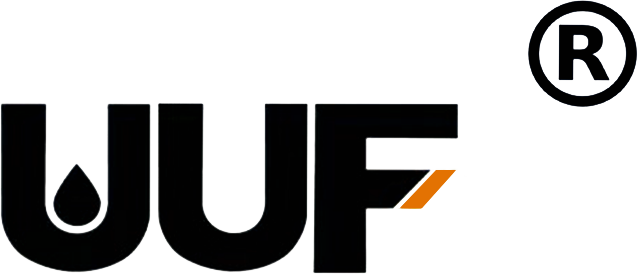Choosing the Right Oil Seal Supplier for Your Automotive Needs
Time:
2025-04-14
When looking for an oil seal supplier in the automotive and parts industry, particularly in the realm of rubber sealing components, it's important to understand the key aspects that contribute to a successful partnership. The oil seal is a critical component in automotive applications, as it prevents leaks and maintains the integrity of the system in which it operates. Here are some essential cons
When looking for an oil seal supplier in the automotive and parts industry, particularly in the realm of rubber sealing components, it's important to understand the key aspects that contribute to a successful partnership. The oil seal is a critical component in automotive applications, as it prevents leaks and maintains the integrity of the system in which it operates. Here are some essential considerations for selecting the right supplier:
1. **Quality Assurance**: One of the most significant factors to prioritize is the quality of the oil seals. A reputable supplier should have a robust quality control process in place. Look for suppliers who comply with international standards and certifications, such as ISO 9001. High-quality seals are vital for performance and longevity, reducing the risk of premature failure in automotive applications.
2. **Material Selection**: The performance of an oil seal relies heavily on the materials used in its construction. High-quality rubber compounds, such as Nitrile (Buna-N), Viton, and silicone, offer varying degrees of resistance to heat, chemicals, and wear. When evaluating potential suppliers, inquire about the materials they utilize and their suitability for specific automotive applications.
3. **Customization Options**: Different automotive applications may require unique specifications for oil seals, including size, shape, and material properties. A capable supplier should provide custom solutions tailored to specific needs. This flexibility can significantly enhance the efficiency and effectiveness of the sealing solutions for various automotive systems.
4. **Technical Support**: A reliable oil seal supplier should offer excellent technical support. This includes helping clients choose the right seals for their specific applications, providing installation guidance, and troubleshooting any issues that may arise. Strong technical expertise can greatly influence the success of your projects.
5. **Lead Times and Delivery**: Fast and reliable delivery is essential in the automotive industry to minimize downtime. When selecting an oil seal supplier, evaluate their lead times and shipping reliability. A supplier with efficient logistical operations can help you maintain your production schedules and fulfill customer demands promptly.
6. **Reputation and Experience**: Research potential suppliers' reputations within the industry. Look for testimonials, case studies, and reviews from other clients. Suppliers with a long-standing presence and positive feedback are more likely to provide consistent quality and service.
7. **Cost Considerations**: While price should not be the sole determining factor, it's essential to consider the overall value offered by a supplier. Quality products and reliable service can lead to cost savings in the long run by reducing warranty claims and enhancing customer satisfaction.
In conclusion, finding the right oil seal supplier requires careful consideration of quality, material, customization, support, delivery, reputation, and cost. By focusing on these key factors, automotive professionals can ensure they partner with a supplier that meets their specific needs and contributes to the success of their projects.
1. **Quality Assurance**: One of the most significant factors to prioritize is the quality of the oil seals. A reputable supplier should have a robust quality control process in place. Look for suppliers who comply with international standards and certifications, such as ISO 9001. High-quality seals are vital for performance and longevity, reducing the risk of premature failure in automotive applications.
2. **Material Selection**: The performance of an oil seal relies heavily on the materials used in its construction. High-quality rubber compounds, such as Nitrile (Buna-N), Viton, and silicone, offer varying degrees of resistance to heat, chemicals, and wear. When evaluating potential suppliers, inquire about the materials they utilize and their suitability for specific automotive applications.
3. **Customization Options**: Different automotive applications may require unique specifications for oil seals, including size, shape, and material properties. A capable supplier should provide custom solutions tailored to specific needs. This flexibility can significantly enhance the efficiency and effectiveness of the sealing solutions for various automotive systems.
4. **Technical Support**: A reliable oil seal supplier should offer excellent technical support. This includes helping clients choose the right seals for their specific applications, providing installation guidance, and troubleshooting any issues that may arise. Strong technical expertise can greatly influence the success of your projects.
5. **Lead Times and Delivery**: Fast and reliable delivery is essential in the automotive industry to minimize downtime. When selecting an oil seal supplier, evaluate their lead times and shipping reliability. A supplier with efficient logistical operations can help you maintain your production schedules and fulfill customer demands promptly.
6. **Reputation and Experience**: Research potential suppliers' reputations within the industry. Look for testimonials, case studies, and reviews from other clients. Suppliers with a long-standing presence and positive feedback are more likely to provide consistent quality and service.
7. **Cost Considerations**: While price should not be the sole determining factor, it's essential to consider the overall value offered by a supplier. Quality products and reliable service can lead to cost savings in the long run by reducing warranty claims and enhancing customer satisfaction.
In conclusion, finding the right oil seal supplier requires careful consideration of quality, material, customization, support, delivery, reputation, and cost. By focusing on these key factors, automotive professionals can ensure they partner with a supplier that meets their specific needs and contributes to the success of their projects.
Keyword:
oil seal supplier


















